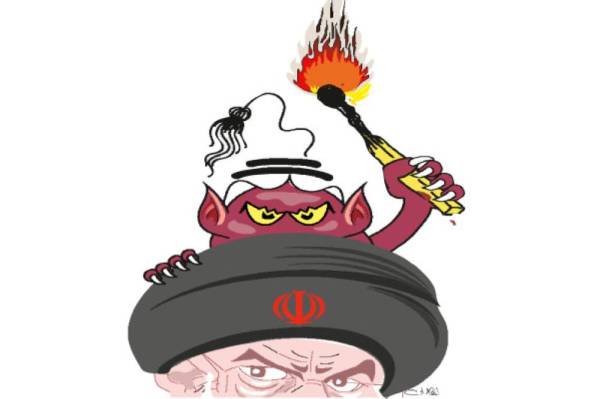[Idea from Private Eye]
Prime Minister Benjamin Netanyahu
An Apology
In common with all other media outlets in recent months, we may have given the impression that Benjamin Netanyahu was in some way a political genius who was a worthy victor of the Israeli general election. Headlines such as "He's David Ben-Gurion, Golda Meir, and Moshe Dayan rolled into one," "Bismarck of the Middle East," "Election victory is equivalent of Six Day War for Bibi" and "Is Bibi the Messiah?" might have reinforced the view that were in some sense in awe of Mr Netanyahu's skills.
We now realize, in the light of the collapse of government formation and a new election in September, that Bibi is in fact somewhat incompetent and prone to exaggeration and motivated mainly by the narrow self interest of him and his family. Our headlines this week such as "Bibi and wife headed to adjacent jail cells," "35 seats when 61 needed for majority returns to haunt Bibi" will, we hope, go some way to correcting any misunderstanding to which our thousands of previous news stories and opinion articles may have given rise.
Leader of "Israel Our Home" Party, Avigdor Lieberman
An Apology
In common with all other media outlets in recent months, we may have given the impression that Avigdor Lieberman was in some way a dangerous ultra-nationalist who represented the worst of Israel's shift to the right. Headlines such as "Back in the USSR," "Lieberman demands all Arabs move east of the Tigris river," and "He wants nothing more than to crush the Church of the Nativity under the wheels of a Russian tank"might have reinforced the view that we in some sense viewed Lieberman as a bizarre byproduct of Soviet migration to Israel who was determined to start an all-out war to expand Israel in every direction.
We now realize, in light of the collapse of coalition negotiations due to Lieberman's insistence on inclusion of the Orthodox in a conscription law, that he is in fact the true custodian of a secular Israel. Our headlines this week such as "Lieberman the toast of Tel Aviv" and "Get a White Russian for The Dude Lieberman" will, we hope, go some way to correcting any misunderstanding to which our thousands of previous news stories and opinion articles may have given rise.
Prime Minister Benjamin Netanyahu
An Apology
In common with all other media outlets in recent months, we may have given the impression that Benjamin Netanyahu was in some way a political genius who was a worthy victor of the Israeli general election. Headlines such as "He's David Ben-Gurion, Golda Meir, and Moshe Dayan rolled into one," "Bismarck of the Middle East," "Election victory is equivalent of Six Day War for Bibi" and "Is Bibi the Messiah?" might have reinforced the view that were in some sense in awe of Mr Netanyahu's skills.
We now realize, in the light of the collapse of government formation and a new election in September, that Bibi is in fact somewhat incompetent and prone to exaggeration and motivated mainly by the narrow self interest of him and his family. Our headlines this week such as "Bibi and wife headed to adjacent jail cells," "35 seats when 61 needed for majority returns to haunt Bibi" will, we hope, go some way to correcting any misunderstanding to which our thousands of previous news stories and opinion articles may have given rise.
Leader of "Israel Our Home" Party, Avigdor Lieberman
An Apology
In common with all other media outlets in recent months, we may have given the impression that Avigdor Lieberman was in some way a dangerous ultra-nationalist who represented the worst of Israel's shift to the right. Headlines such as "Back in the USSR," "Lieberman demands all Arabs move east of the Tigris river," and "He wants nothing more than to crush the Church of the Nativity under the wheels of a Russian tank"might have reinforced the view that we in some sense viewed Lieberman as a bizarre byproduct of Soviet migration to Israel who was determined to start an all-out war to expand Israel in every direction.
We now realize, in light of the collapse of coalition negotiations due to Lieberman's insistence on inclusion of the Orthodox in a conscription law, that he is in fact the true custodian of a secular Israel. Our headlines this week such as "Lieberman the toast of Tel Aviv" and "Get a White Russian for The Dude Lieberman" will, we hope, go some way to correcting any misunderstanding to which our thousands of previous news stories and opinion articles may have given rise.
